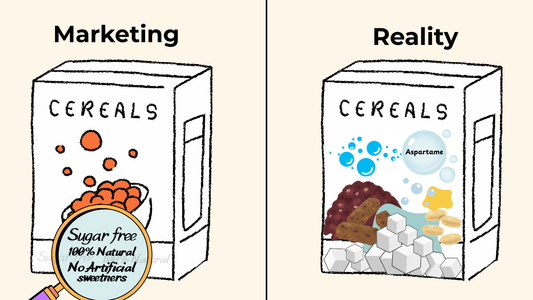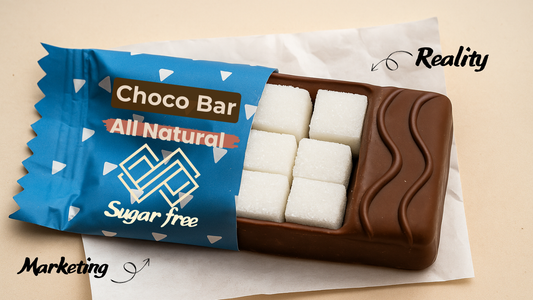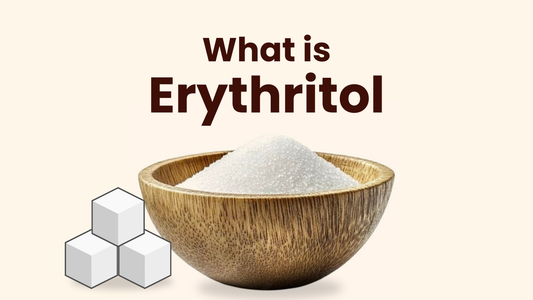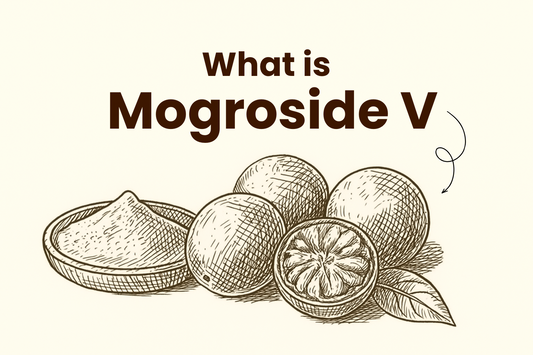Introduction: How Sugar Rewrote Nutrition Science
We grow up believing science is neutral - that what we read in textbooks or health guidelines is pure truth. But history tells a different story. For decades, the sugar industry funded, shaped, and manipulated research to protect its profits, even if it meant putting public health at risk.
This isn’t conspiracy theory. It’s documented in peer-reviewed journals and investigative studies.
How the Sugar Industry Paid Scientists to Shift Blame
In the 1960s, sugar wasn’t seen as the main culprit for heart disease - fat was. That wasn’t by accident.
-
In 1967, the Sugar Research Foundation (SRF) secretly funded Harvard scientists to publish a review in the New England Journal of Medicine (NEJM). This review minimized sugar’s risks and instead blamed saturated fat for heart disease.
-
Internal industry documents, discovered decades later, revealed that the SRF paid the equivalent of $50,000 (today’s value) to the researchers and influenced the review’s direction.
-
At that time, NEJM didn’t require disclosure of conflicts of interest, so readers never knew.
👉 This review shaped nutrition policy for years, pushing the “low-fat, high-carb” diet era that ironically meant more sugar consumption.
How Dental Research Was Hijacked
Sugar doesn’t just affect hearts - it rots teeth. You’d expect dental health programs to focus on limiting sugar. But in 1971, the National Institute of Dental Research (NIDR) in the US created the National Caries Program - and instead of recommending sugar reduction, it focused on things like developing fluoride and enzymes.
Why? Because the sugar industry heavily influenced the research agenda.
-
A PLOS Medicine analysis of internal papers shows that 78% of the industry’s proposed research priorities were adopted by the NIDR.
-
This meant instead of discouraging sugar, national policy focused on “damage control” methods that allowed sugar sales to continue.
👉 The industry’s fingerprints were all over the official science.
Modern-Day Research Bias: The Funding Problem
You’d think things have changed, but industry influence continues today.
-
A 2013 review of studies on sugary drinks found that those funded by soda companies were 5 times more likely to report no link between sugary drinks and obesity, compared to independently funded studies.
-
Similar patterns show up across nutrition research: when funding comes from the food and beverage industry, conclusions tend to favor the sponsor’s products.
👉 The result: confusion for consumers. For every independent study warning about sugar, there’s an industry-funded one saying “moderation is fine.”
How This Shaped Global Food Guidelines
The “fat vs sugar” narrative reshaped how people ate:
-
In the 1970s, official guidelines emphasized low fat diets.
-
Food companies responded with low-fat, high-sugar processed foods.
-
Consumers thought they were eating healthier, but they were consuming more sugar than ever.
👉 Public health suffered while sugar sales grew.
Why India Should Care
This isn’t just an American story. India’s sugar industry is politically powerful, especially in states like Maharashtra. Cooperatives influence government policies and subsidies, ensuring sugar remains cheap and widely available.
Meanwhile, myths like “jaggery is healthy” or “honey is safe for diabetics” keep demand alive. Add weak labeling laws, and India is trapped in the same cycle: industry interests > public health.
What Science Says Today
Thankfully, independent science has caught up. Modern research is clear:
-
Diets high in added sugar are linked with obesity, diabetes, fatty liver, and heart disease.
-
Ultra-processed foods rich in sugar are associated with higher all-cause mortality and cardiovascular risk.
These aren’t marketing claims - they come from large, long-term studies published in BMJ, Lancet, and other respected journals.
Final Takeaway
The sugar industry didn’t just influence public opinion - it hijacked science itself.
-
They paid researchers.
-
They shaped policy.
-
They funded studies designed to confuse.
For decades, people ate more sugar, thinking fat was the enemy. The result? A global explosion of diabetes, obesity, and heart disease.
👉 The lesson is clear: always ask “who funded this study?” And never trust health claims that come from industries selling the very product in question.







